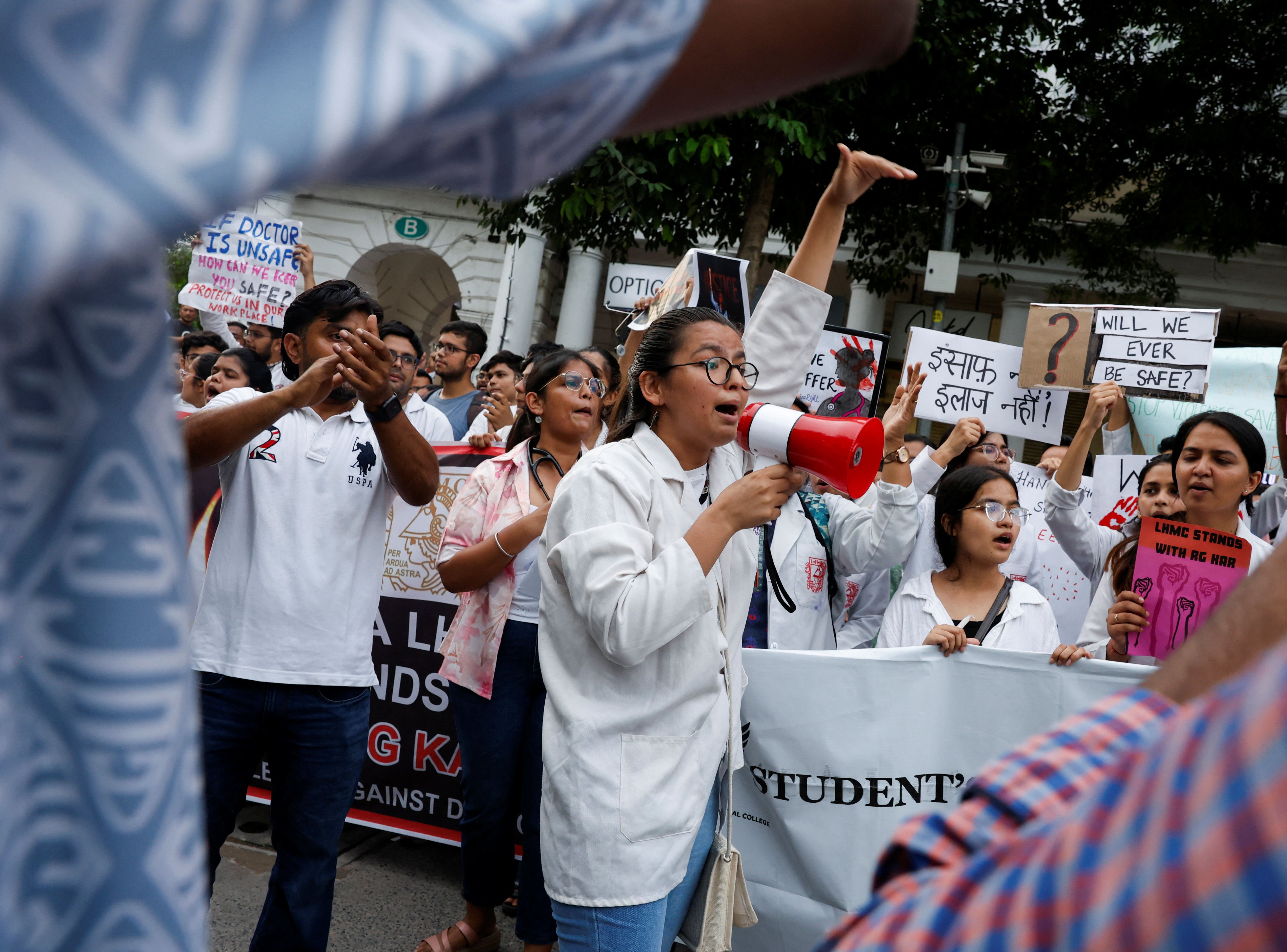
Indian physicians are refusing to cease their demonstrations in response to the rape and murder of a doctor
Thousands of junior physicians in India refused to cease their protests over the rape and murder of a fellow medic on Monday, resulting in the disruption of hospital services nearly a week after they initiated a nationwide action to demand a safer workplace and a swift criminal investigation.
As a result of the Aug. 9 murder of a 31-year-old medical student who was allegedly assaulted and murdered at a hospital in Kolkata, the country’s eastern city, doctors have refused to treat non-emergency patients and have organized protests.
The crime has been charged against a police volunteer who was apprehended. According to women activists, the incident has underscored the fact that women in India continue to endure sexual violence, despite the implementation of more stringent laws in response to the 2012 gang-rape and murder of a 23-year-old student on a moving bus in New Delhi.
A committee has been established by the government to recommend measures to enhance the protection of healthcare professionals, while physicians are encouraged to resume their duties.
“Our indefinite cease-work and sit-in will persist until our demands are satisfied,” stated Dr. Aniket Mahata, a spokesperson for the junior physicians who are protesting at the R.G. Kar Medical College and Hospital, the location of the incident.
Thousands of supporters of the two largest soccer clubs in West Bengal state marched through Kolkata on Sunday evening, chanting “We want justice,” in support of the physicians.
The protests of junior physicians in the western state of Gujarat, the capital New Delhi, and the neighboring state of Odisha will also persist, according to the groups that represent them.
In an interview with India’s Business Standard daily, Gita Gopinath, the deputy managing director of the International Monetary Fund, emphasized the significance of workplace safety in order to increase the country’s female labor force participation rate, which was 37% in FY2022-23.
“It is impossible to increase female participation without ensure the safety of both the workplace and the women’s journey to the workplace.” Gopinath stated in the interview that was published on Monday, “That is absolutely critical.”
All Categories
Recent Posts
Tags
+13162306000
zoneyetu@yahoo.com



